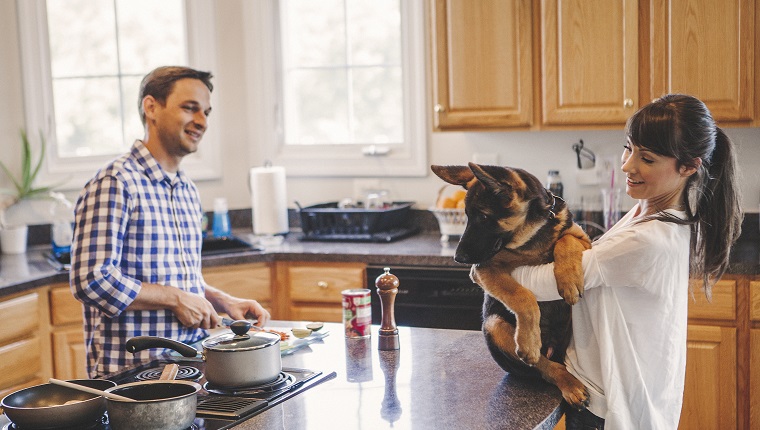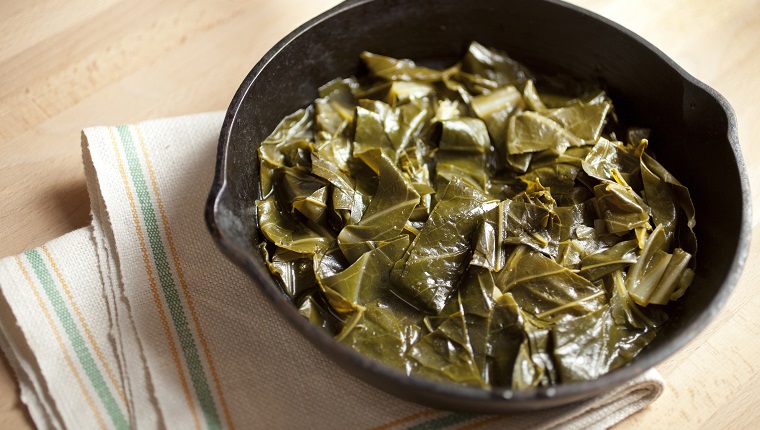Can dogs eat collard greens? Maybe you’ve had this thought if your dog wanted a bite while you were preparing some collard greens in the kitchen as part of a southern-style celebratory meal. If humans can eat collard greens, can dogs safely eat them too?
There is no short yes or no answer as to whether dogs can eat collard greens safely. While collard greens aren’t usually toxic or poisonous to dogs, there’s a potential problem concerning canines who are experiencing bladder or kidney issues. There are also a few considerations about how you should prepare and serve collard greens to your dog.
As always, you must ask your regular vet before sharing any human food with your resident dog, including collard greens. Here’s what you need to know about collard greens and dogs.
When Are Collard Greens Okay For Dogs To Eat?
Collard greens are a bit of a nutritional powerhouse. They contain a great amount of the vitamins A, C, and K, plus folate and riboflavin. They’re also high in fiber, which can help your dog digest regularly if served correctly.
If you decide to give some collard greens to your dog, make sure that you only serve the actual leaves rather than the stems. This is because the stem is both much harder to digest and also contains a level of fiber that could result in a bout of diarrhea.
When feeding your dog collard greens, experts often recommend that you steam the leaves to help soften them up. Once you’ve done that, you can chop them up and add them to your pooch’s regular food.
When Are Collard Greens Bad For Dogs?

The main problem with feeding collard greens to your dog is that they’re high in both isothiocynates and calcium oxalate. This means that there’s a chance that they could cause bladder and kidney stones. So if your dog is currently suffering from any bladder or kidney issues, it’s best to exercise caution and avoid adding collard greens to their diet.
Secondly, remember to only serve a small or veterinarian-recommended amount to your dog. A good guide is to serve less than half a cup of collard greens a day; although, you’ll want to also factor in the size of your dog when figuring out what amount you should safely add to their meals.
Your veterinarian can give you further guidance on appropriate serving sizes for your individual pet.
Does your dog love collard greens? How do you prepare them for your pooch? Tell us all about it in the comments section below!





